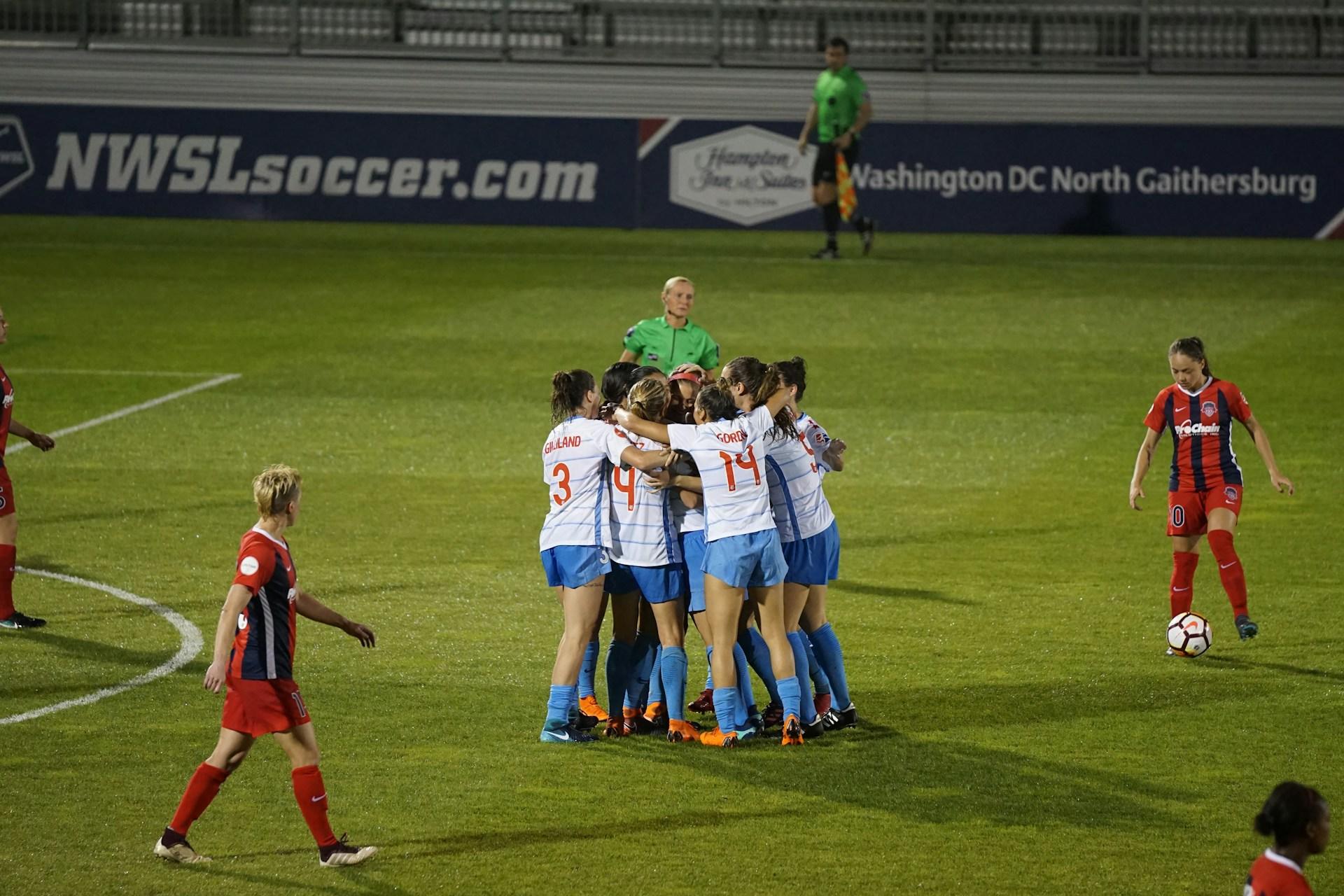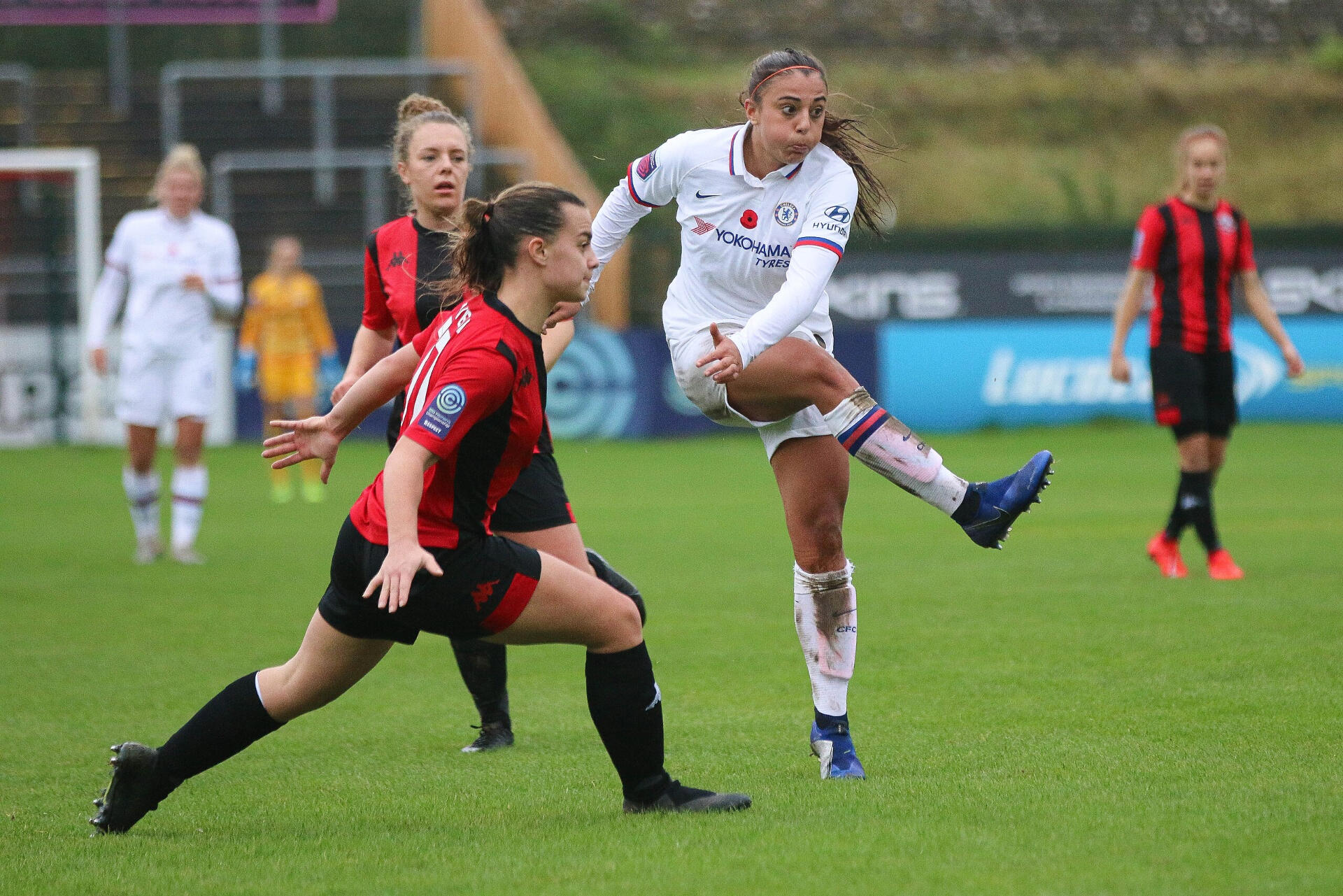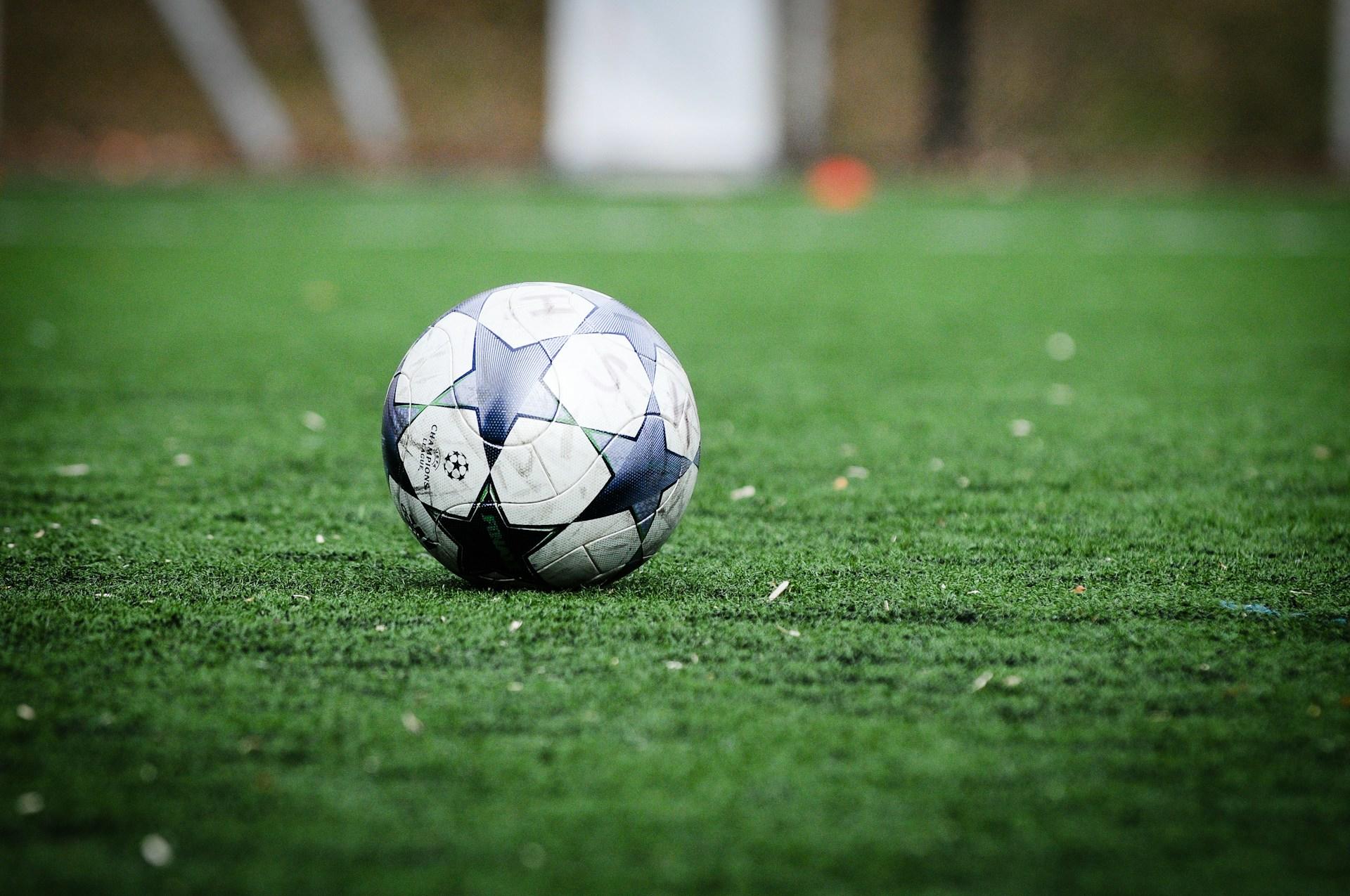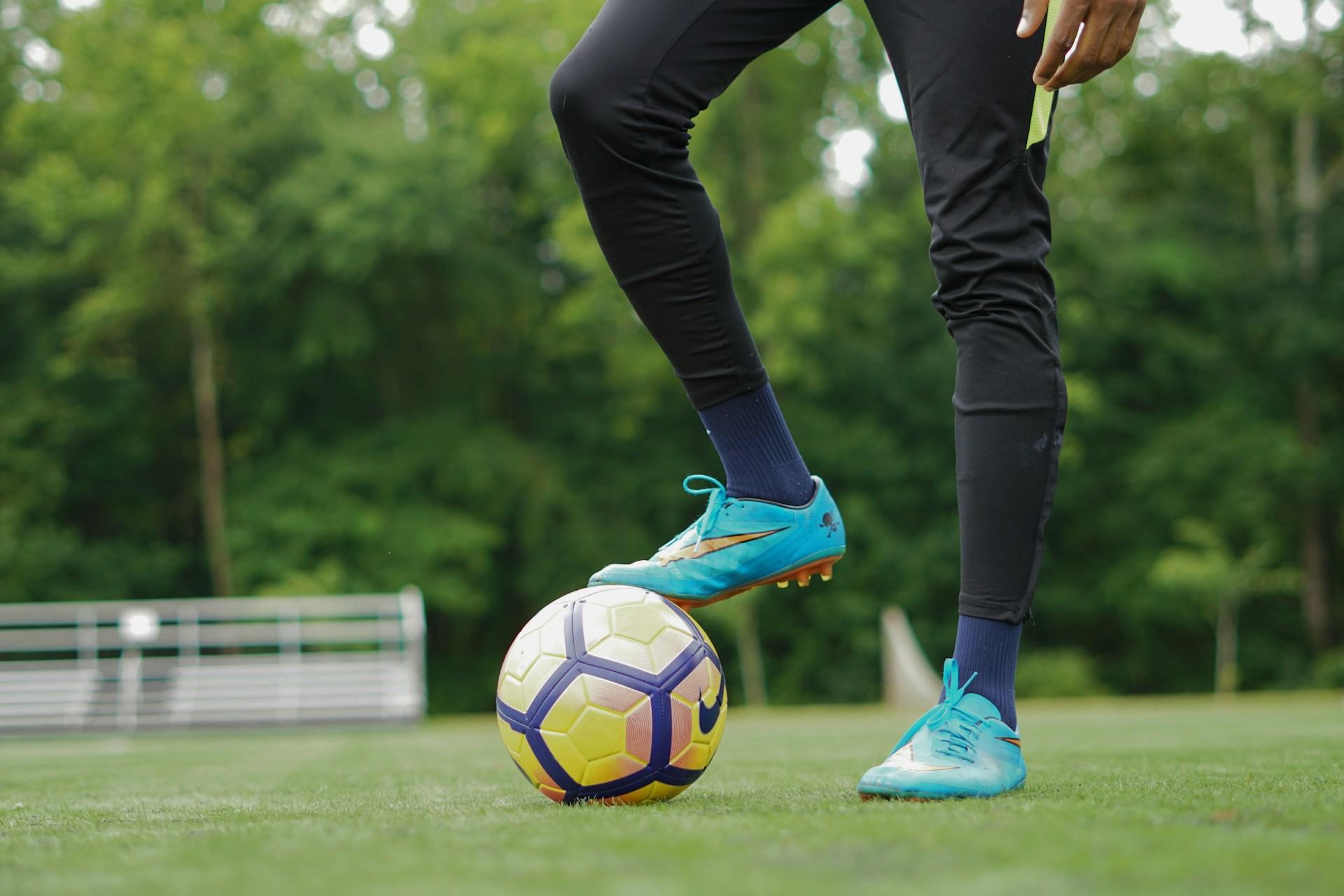Referees are the unsung heroes of football, ensuring fairness and keeping the game running smoothly. While they have significant influence on the pitch, refereeing isn’t about power – it’s about upholding the Laws of the Game.
Each year, dedicated football fans enrol in training programmes, driven by their passion for the sport and a desire to enforce these laws. If you share their love for the game and are thinking of becoming a referee, here’s what you need to know:
- Insights into the top referees, both male and female
- The steps to becoming a qualified football referee
- What referees' hand signals mean
- What you could earn as a football referee

The Most Famous Football Referees
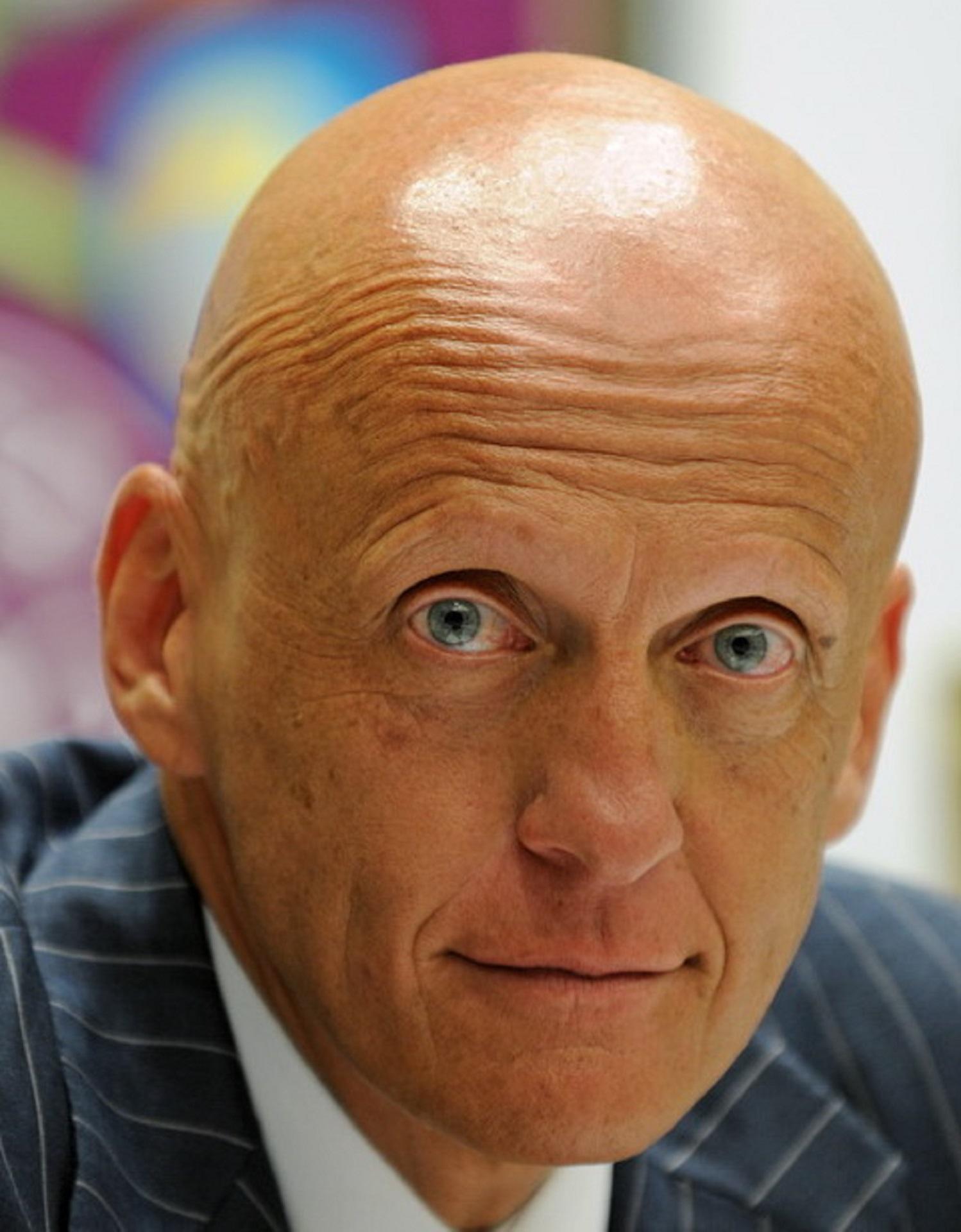
The best way to develop your football referee philosophy is to study those who excel at it. The best referees demonstrate empathy and toughness, assertiveness and calmness as they perform their duties. It takes a certain mettle to stand firm against angry footballers while making just calls.
Nobody does this better than Pierluigi Collina. His bald head and steely glare are enough to frighten even the most aggressive players into submission.
His long history as a referee, across various level matches, proves his skill and popularity. He has been recognised as the International Federation of Football History and Statistics (IFFHS) All-Time World's Best Referee.
The best way to develop your philosophy as a football referee is to study those who have mastered the craft. Top referees strike a balance between empathy and toughness, assertiveness and composure. It takes real strength to stand firm against frustrated players while making fair decisions.
Few embody this better than Pierluigi Collina. With his iconic bald head and piercing gaze, he could command respect from even the most heated players.
Collina’s extensive career, spanning various levels of competition, showcases his exceptional skills and enduring popularity. He has been recognised as the International Federation of Football History and Statistics (IFFHS) All-Time World's Best Referee.
For insight into his approach, you might consider reading his book My Rules of the Game, which offers both a memoir and a deep analysis of football refereeing. With that knowledge, you can delve further into the techniques of the world’s top football referees.
Among those names, you'll find Howard Webb (England), Massimo Busacca (Switzerland), and Ravshan Irmatov (Uzbekistan). They are all famous as much for their game management skills as the high-profile matches they've refereed.
The Best Female Football Referees
Women’s football still struggles for visibility, credibility, and equal pay compared to the men’s game, with female referees rarely receiving recognition. Historically, women who played football were labelled "hoydens," and although times have changed, some outdated perceptions remain, contributing to these challenges.
In men’s football, the path to success is well-established, and most barriers have been broken. By contrast, women’s football, including female refereeing, remains an area of untapped potential, where many firsts are still to be achieved.
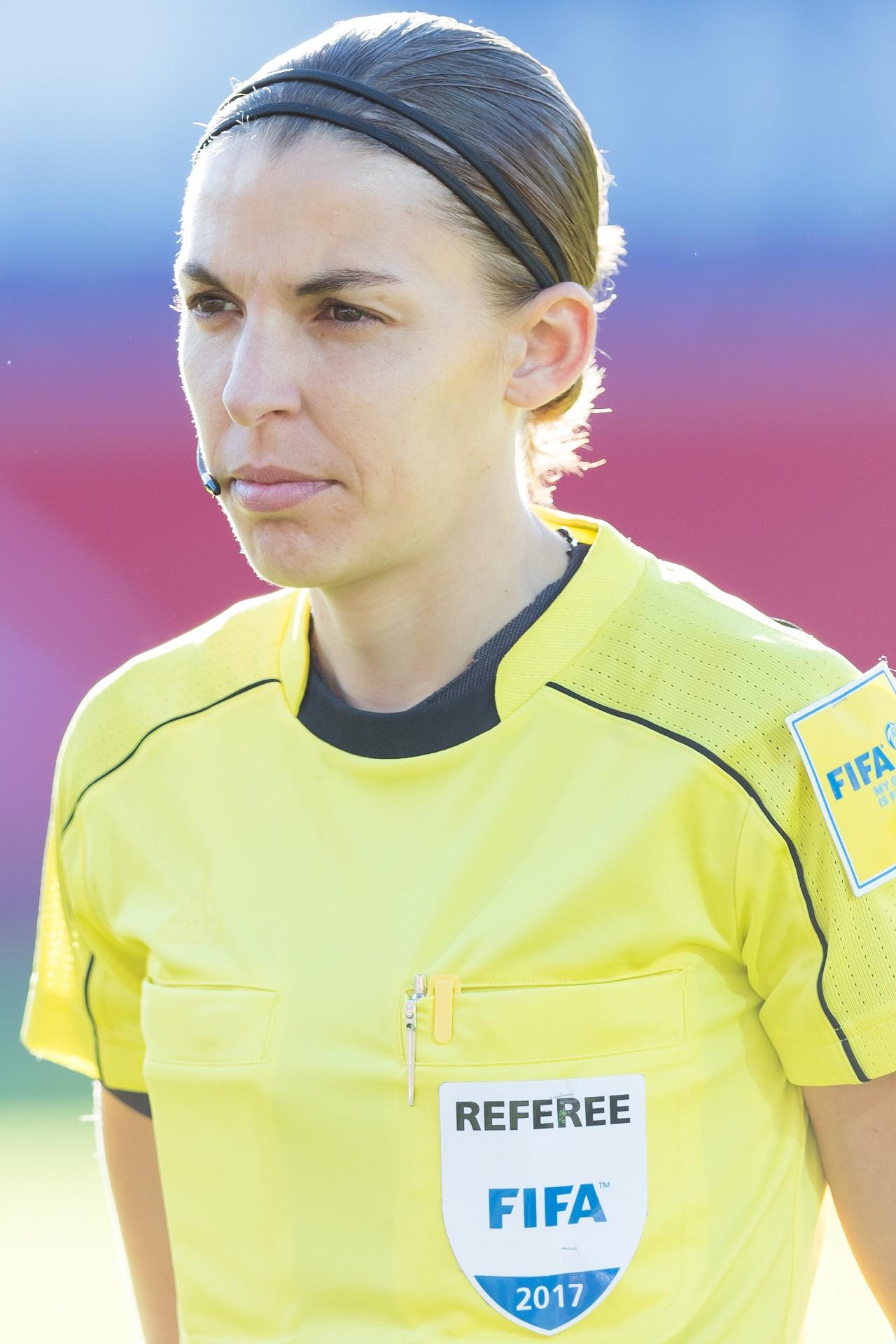
So why hasn’t women’s football gained the spotlight it deserves? Team loyalty, brand familiarity, and fear of change may play a role. Many fans are deeply attached to men’s teams, and the unfamiliarity of women’s football may make them hesitant to embrace it.
However, this presents an exciting opportunity. With fewer trails blazed, women’s football and female refereeing can create a new legacy. Increased visibility, better marketing, and stronger media coverage are crucial to elevating the women’s game and giving it the platform it deserves. The future is bright for women’s football, but it needs support to reach its full potential.
Rebecca Welch made history as the Premier League’s first female referee in 2023, while Sam Allison became the first black official to referee a match in the league in 15 years.
Rebecca Welch ranks among the most famous female referees. Late last year (2023), she refereed her first Premier League match, the first woman to do so. Two years before that, she became the first woman to officiate an English Football League (EFL) match.
Long before Rebecca stepped on the pitch, German referee Bibiana Steinhaus made waves. She debuted as a German Football Association (DFB) referee in 1999, working her way up the ranks. It took some time to reach the Bundesliga level, but the IFFHS recognised her talent long before she refereed a Bundesliga match. That organisation hailed her as the Best Woman Referee four times, and Referee of the Decade (2011-2020).
Not to discount those and other female referees' accomplishments, but Stéphanie Frappart outshines them all. She was the first female to referee a men's Ligue 1 match, and the first woman to referee a Union of European Football Associations (UEFA) Champions match. Like Bibiana, Stéphanie is a five-time IFFHS award winner.
These three female referees - and other women who referee football matches, offer a curious social experiment. Female refs have ground to break and boundaries to breach, limits their male counterparts long ago exceeded. Might these women cause a culture shift in football for their novelty? Or will fans stay loyal to the teams and standards they've long followed?

How to Become a Football Referee
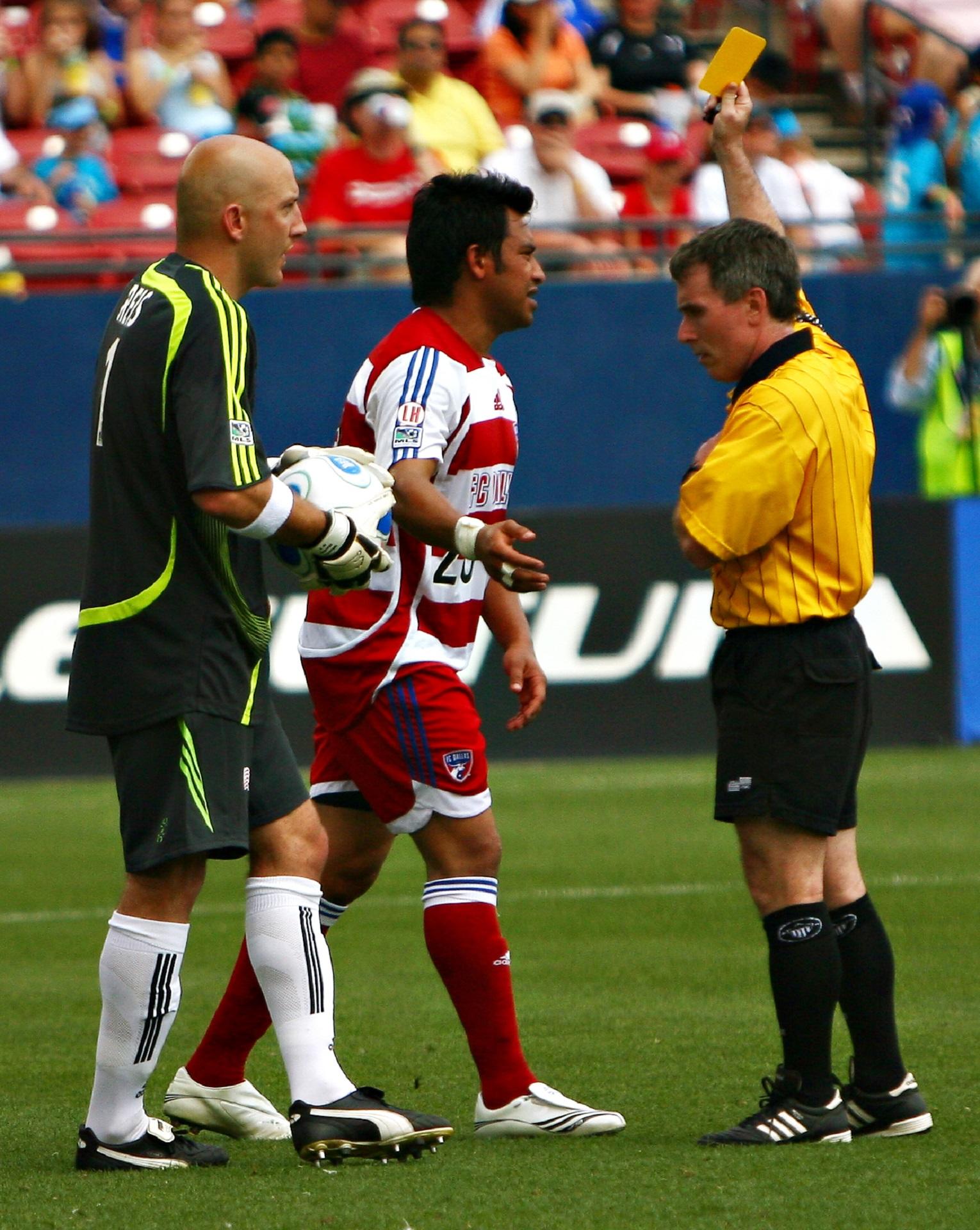
Male or female, becoming a football referee entails following the same steps. Aspiring referees must know the Laws of the Game.
They must complete a refereeing course, and sit an exam. They must officiate a few matches. They must meet or exceed the physical standards of fitness and ability, and pass a certification challenge.
This general formula applies to anyone who wants to become a referee, anywhere in the world. The order they complete those mandates, and the minimum age threshold, vary from country to country.
To become a referee, start by studying them. Not just the referees in this article series, though that's a good start. Attend local games but, instead of focusing on the players, keep your eyes on the referees. At the least, you'll keep up with the on-pitch official, as well as two assistants who monitor the game from the sidelines.
Tracking them gives you an idea of how physically demanding refereeing is. Consider, for instance, that players may rotate in and out, but not the refs. The best estimates assert that football referees run more than six miles per game.
Referees do not have personal trainer/coach assigned to them, like the players do. They must ensure their fitness on their own. If you plan to become a referee, a Superprof fitness coach could help you meet your conditioning standards.
Mastering Football Referees' Hand Signals
Football referees use signals to communicate their game management decisions. The most obvious of such are the yellow and red cards.
To warn a player of some minor misdeed, the referee will face the offender, make eye contact, and hold their yellow card high. Should a player commit a grave offence - handing the ball or pushing a rival, the ref holds up their red card.
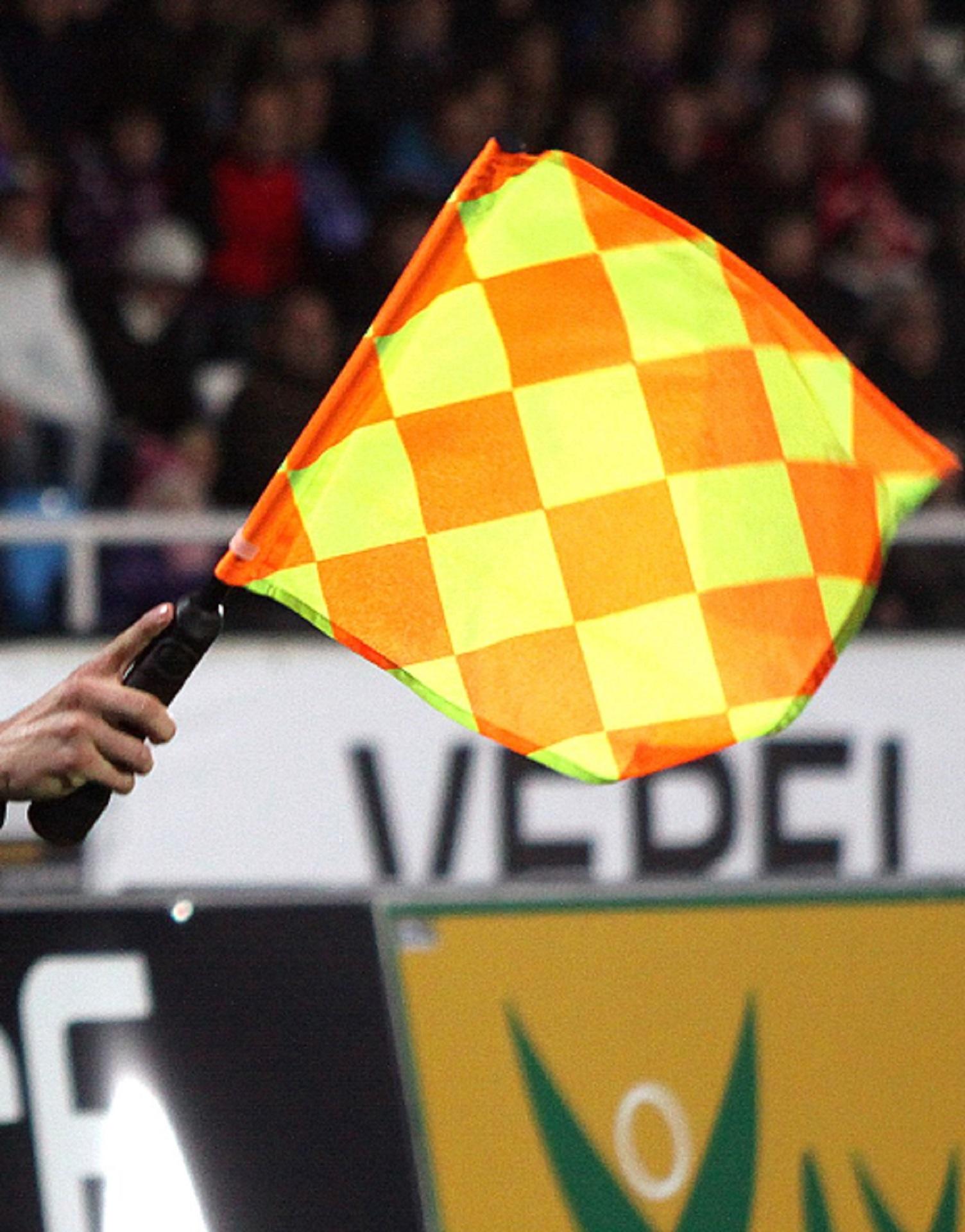
Referees have whistles, but use them as little as possible. A blast to start and restart the game, for instance, or to get an offending player's attention. This suggests that referees must have alternate communication methods.
Headsets are relatively new to football refereeing. Today, they feature in practically every match but, before such technology existed, referees relied on body language to communicate decisions. Thus, it's not quite accurate to call these signs 'hand' signals.
Referees must be masters of physical communication - with only two cards for help. Assistant referees have flags to amplify their messages. Two assistants per game stand on opposite sidelines, monitoring half of the pitch. While the referee runs among the player, assistants' perspectives gives that official additional information.
They too must watch the referee and respond to calls. For instance, an assistant will race to a corner and hold their flag at a 45-degree angle when the referee signals a corner kick. Referee 'hand' signals are a multi-layered communication strategy. Referees in training often rely on a guide to hand signals until them master them all.
How Much Does a Football Referee Earn?
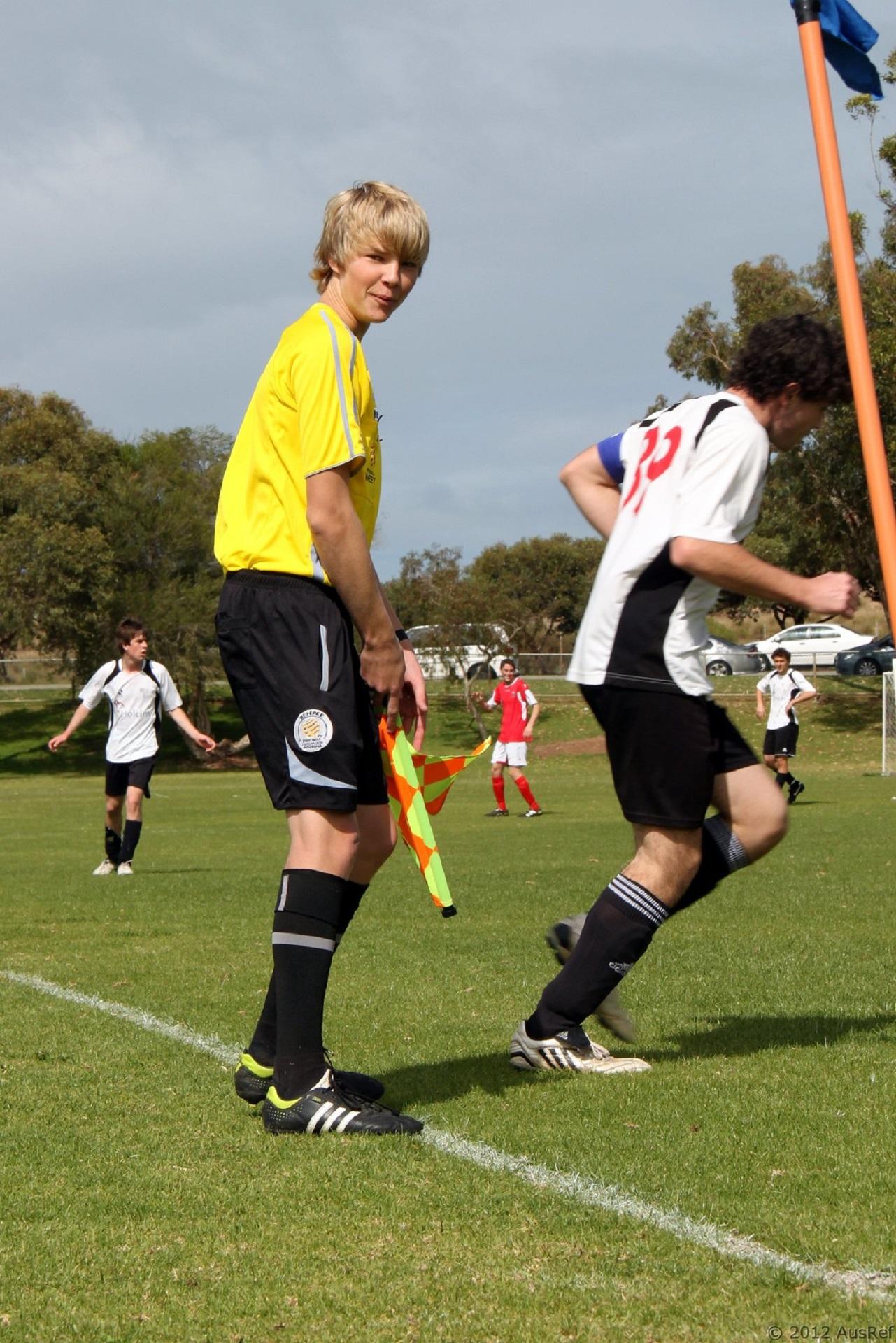
As with every human enterprise, the higher one reaches in the referee ranks, the more they earn. For instance, a Fédération Internationale de Football Association (FIFA) referee earns a base salary of $70 000/year (roughly £59 000). On top of that, they earn $3 000 (~£2 275) for group stage games; $10 000 (~£7 600) for knockout stage games.
FIFA upgraded its pay scale ahead of the 2018 World Cup tournament. However, FIFA does not cover league-event referee salaries.
Other divisions don't necessarily have the funds to compensate their referees that well, especially not assistant referees. Thus, many hold down a traditional job and referee only when their schedule allows.
La Liga referees received a massive pay boost when they declared themselves a professional group (in 2020). Today, their base salary hovers around €12 500/month (~£10 500). On top of that, they receive €4 200 (~£3 688) per match, making their annual earnings as much as €250 000 (~£219 619).
Premier League referees don't even get close to that amount. This league's base salary ranges from £70 000 for beginners, to £130 000 for the most experienced referees. Their per-match fees vary, but typically do not permit any referee to earn more than their base salary amount per year.
Premier League assistant referees operate at a disadvantage. Their base salary is £30 000/year, and their match fee is £850/game. If they make it to every match, they stand to earn a maximum of £60 000/year.
Female referees and assistants receive even less. Our querying turned up no concrete numbers, only the repeated assertion that they're typically paid 10-15% less than their male counterparts.
From this information alone, we can conclude that referees earn far less than players do. The most famous referees may boost their bottom lines with endorsements and other appearances. Referees without that name recognition must rely on what they can earn across different leagues. That's why many of them keep their 'day jobs'.
Summarise with AI:

